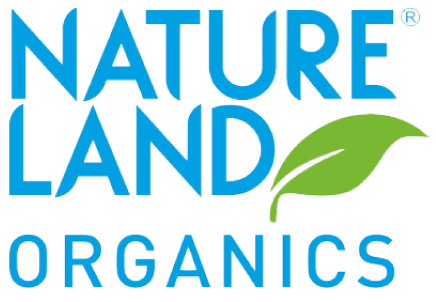
Edible seeds have gained popularity in recent years as a superfood due to their high nutrient content and potential health benefits. Seeds are packed with healthy fats, fiber, protein, vitamins, and minerals that can improve digestion, reduce inflammation, and lower the risk of chronic diseases such as heart disease and diabetes. In this blog, we will discuss the benefits of four popular edible seeds - chia, pumpkin, sunflower, and watermelon seeds - and ways to incorporate them into your diet.
1. Organic Chia Seeds
Chia seeds have gained popularity in recent years due to their high fiber content and ability to absorb water, making them a great addition to smoothies, puddings, and other dishes. These tiny black or white seeds are packed with omega-3 fatty acids, protein, calcium, and antioxidants. One ounce (28 grams) of chia seeds contains 11 grams of fiber, 4 grams of protein, and 137 calories.

Benefits of Chia Seeds
- Improved digestion: Chia seeds are high in soluble fiber, which can help regulate bowel movements and prevent constipation.
- Reduced inflammation: The high omega-3 content in chia seeds can reduce inflammation and lower the risk of chronic diseases such as heart disease and cancer.
- Improved heart health: Chia seeds may lower blood pressure, reduce cholesterol levels, and improve heart health.
Ways to Consume Chia Seeds
Chia seeds can be added to smoothies, yogurt, oatmeal, and baked goods. They can also be used as an egg substitute in recipes by mixing 1 tablespoon of chia seeds with 3 tablespoons of water and allowing the mixture to sit for 5 minutes until it becomes gel-like.
2. Organic Pumpkin Seeds
Pumpkin seeds, also known as pepitas, are a good source of healthy fats, protein, and minerals such as magnesium and zinc. These small, flat, green seeds have a nutty flavor and are often roasted and seasoned for a delicious snack.

Benefits of Pumpkin Seeds
- Improved prostate health: Pumpkin seeds are high in zinc, which is important for prostate health and may help reduce the risk of prostate cancer.
- Reduced inflammation: The antioxidants in pumpkin seeds can reduce inflammation and lower the risk of chronic diseases such as heart disease and cancer.
- Improved sleep: Pumpkin seeds contain tryptophan, an amino acid that can help improve sleep quality and regulate mood.
Ways to Consume Pumpkin Seeds
Pumpkin seeds can be roasted and seasoned with spices for a healthy snack. They can also be added to salads, trail mix, and baked goods.
3. Organic Sunflower Seeds
Sunflower seeds are a good source of healthy fats, protein, fiber, and minerals such as magnesium and vitamin E. These small, oval-shaped seeds have a mild nutty flavor and are often used in snacks and baked goods.

Benefits of Sunflower Seeds
- Improved heart health: The vitamin E in sunflower seeds can improve heart health and lower the risk of heart disease.
- Reduced inflammation: The antioxidants in sunflower seeds can reduce inflammation and lower the risk of chronic diseases such as cancer and diabetes.
- Improved skin health: The vitamin E and healthy fats in sunflower seeds can improve skin health and reduce the risk of skin damage.
Ways to Consume Sunflower Seeds
Sunflower seeds can be roasted and salted for a healthy snack. They can also be added to salads, trail mix, and baked goods.
4. Organic Watermelon Seeds
Watermelon seeds are often discarded when consuming the juicy fruit, but they are actually a nutritious snack on their own. These small, black or white seeds are high in protein, healthy fats, and minerals such as magnesium and potassium.
Benefits of Watermelon Seeds
- Improved digestion: Watermelon seeds are high in fiber, which can help regulate bowel movements and improve digestion.
- Reduced inflammation: The antioxidants in watermelon seeds can reduce inflammation and lower the risk of chronic diseases such as heart disease and cancer.
- Improved bone health: Watermelon seeds are high in calcium, which is important for bone health and can help prevent osteoporosis.
Ways to Consume Watermelon Seeds
Watermelon seeds can be roasted and seasoned with spices for a healthy snack. They can also be added to smoothies, salads, and baked goods.
Incorporating Edible Seeds into Your Diet
Now that we've discussed the benefits of chia, pumpkin, sunflower, and watermelon seeds, here are some simple ways to incorporate them into your diet:
- Add seeds to your breakfast: Sprinkle chia, pumpkin, or sunflower seeds on top of oatmeal or yogurt for a nutritious breakfast.
- Snack on seeds: Keep a bag of roasted seeds at your desk or in your bag for a healthy snack on the go.
- Use seeds as a topping: Add seeds to salads, soups, or roasted vegetables for a crunchy and nutritious topping.
- Use seeds in baking: Add chia or flax seeds to baked goods for an extra boost of fiber and healthy fats.
Conclusion
Edible seeds are a versatile and nutritious addition to your diet. Chia, pumpkin, sunflower, and watermelon seeds are packed with fiber, protein, healthy fats, and essential minerals that can improve digestion, reduce inflammation, and lower the risk of chronic diseases. With a variety of ways to incorporate seeds into your diet, it's easy to reap the benefits of these superfoods. Try adding seeds to your meals and snacks today for a healthier and more nutritious diet








